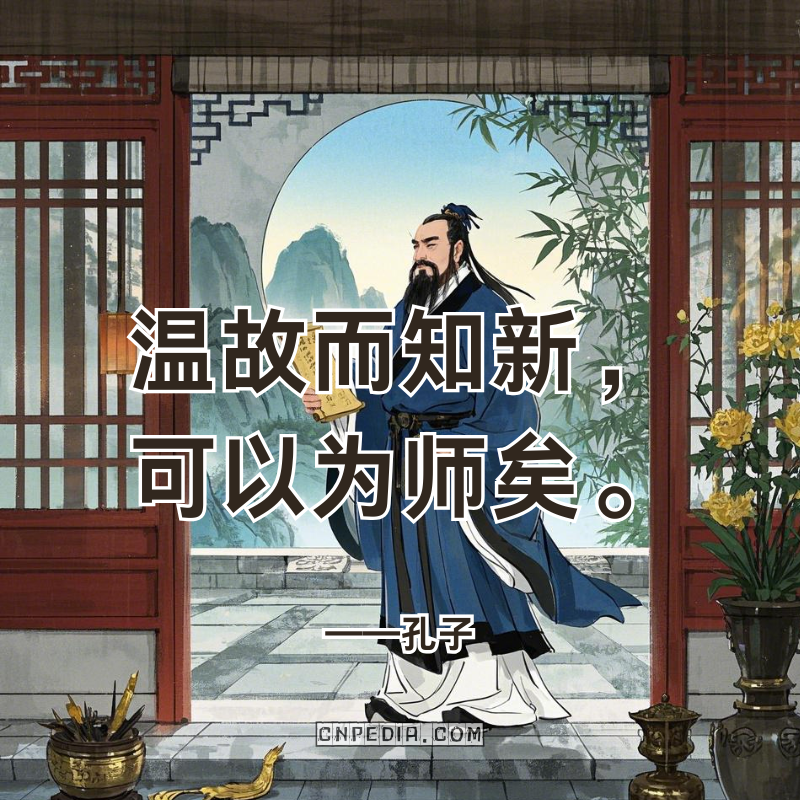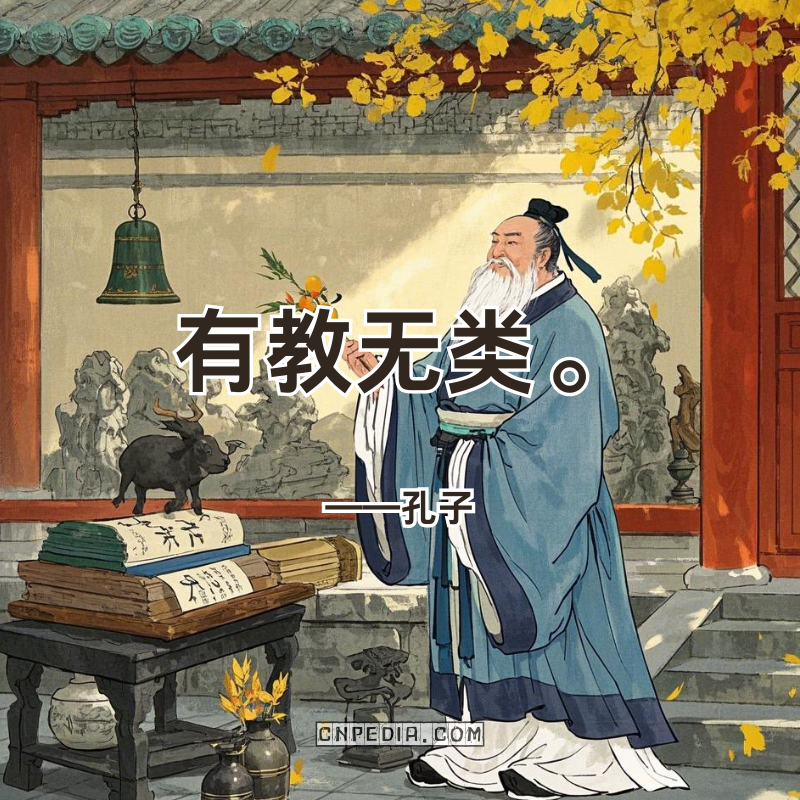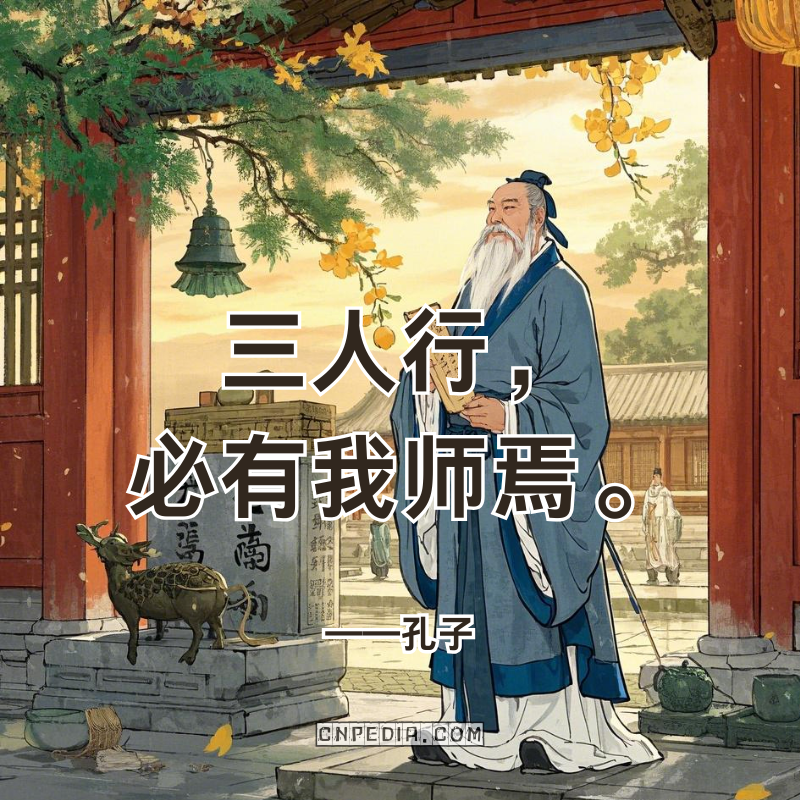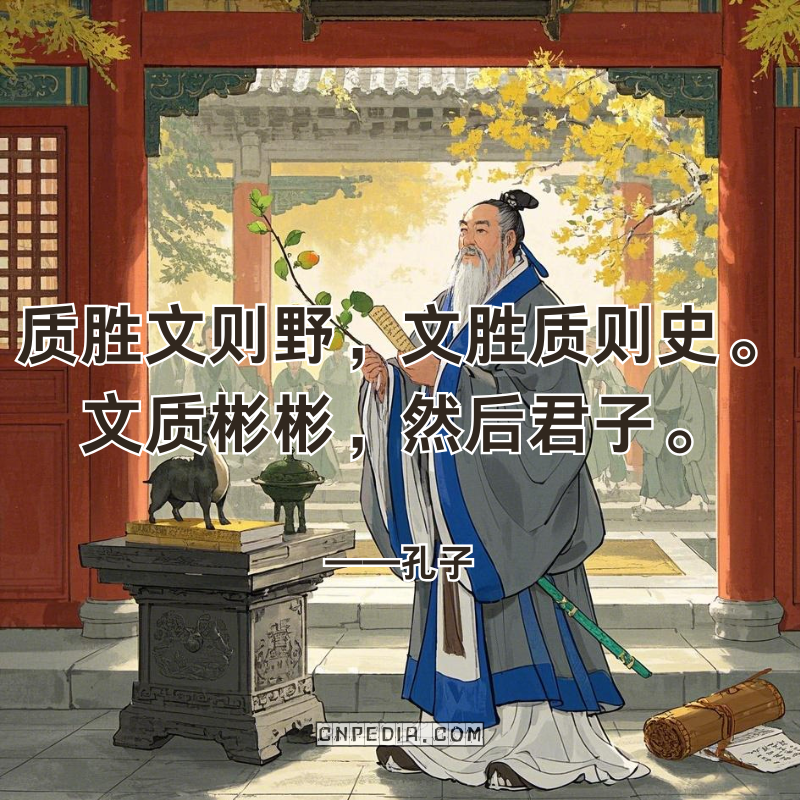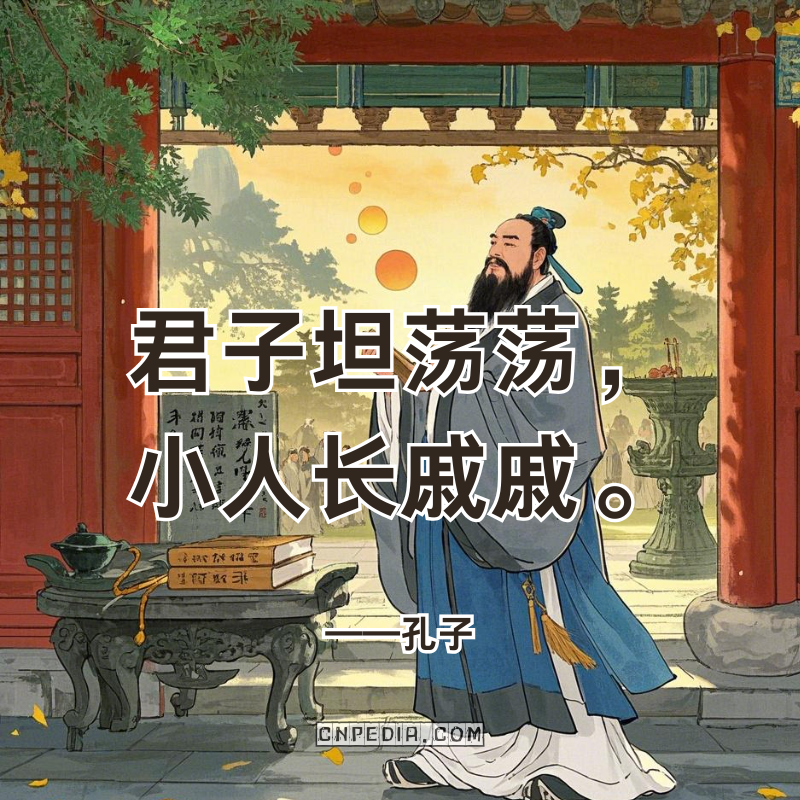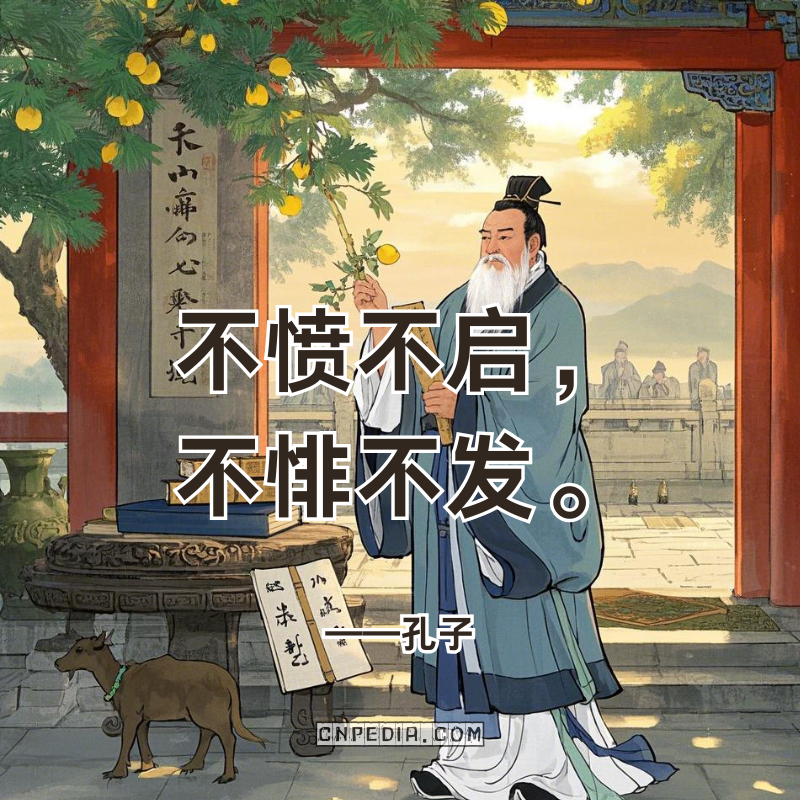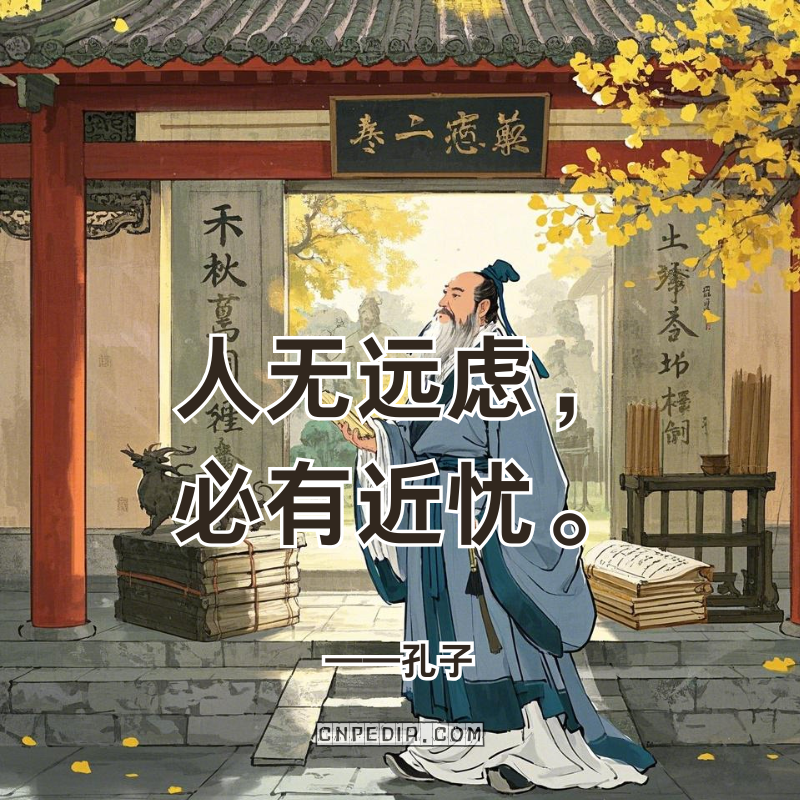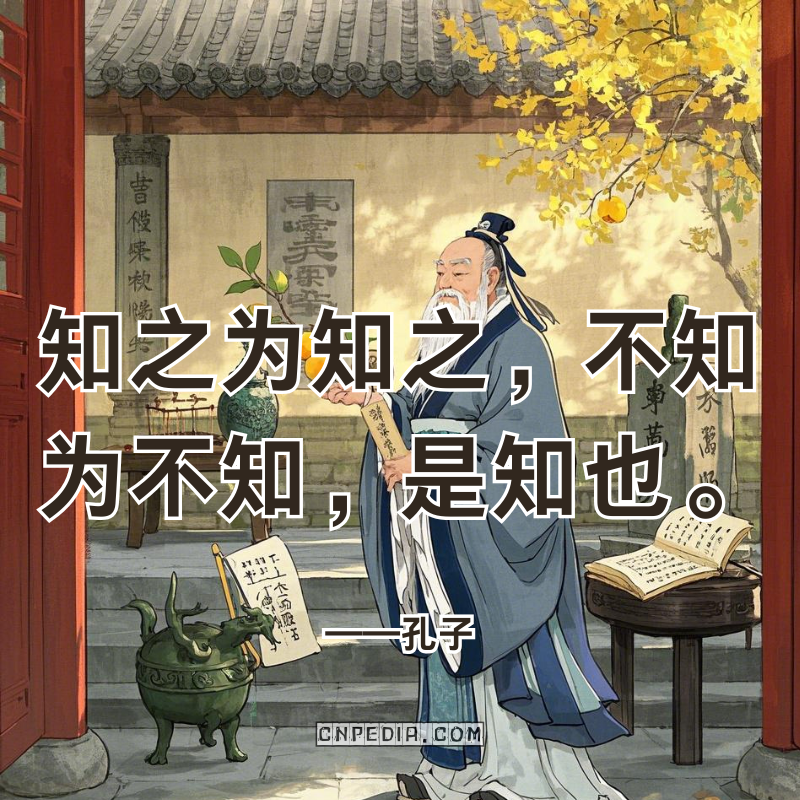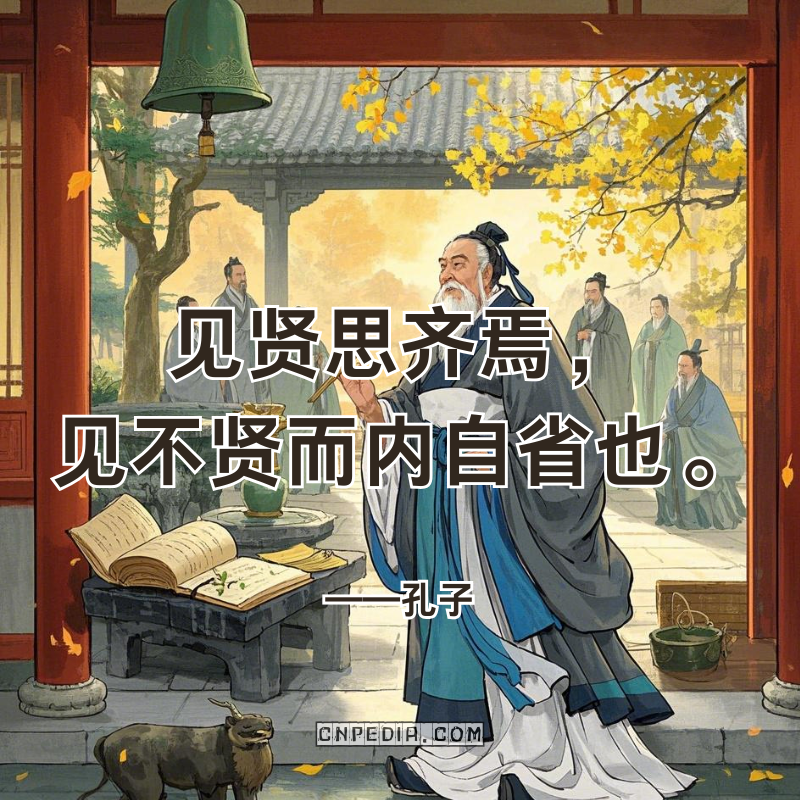
君子喻于义,小人喻于利。——孔子(jūn zǐ yù yú yì, xiǎo rén yù yú lì — Kǒngzǐ) Translation: “Nobles awaken to righteousness; plebeians awaken to profit.” Explanation: Confucius’ maxim “君子喻于义(jūn zǐ yù yú yì), 小人喻于利(xiǎo rén yù yú lì)” (Nobles awaken to righteousness; plebeians awaken to profit) establishes humanity’s earliest cognitive hierarchy theory of ethics. The character 喻(yù)—combining 口(kǒu, speech) and 俞(yú, digest)—metaphorizes moral internalization as a process of verbal instruction transformed into visceral conviction. This framework shaped the 士大夫(shì dà fū) (scholar-official) class’s governance philosophy, where policy decisions prioritized collective 义(yì) (justice) over individual gain. Historical applications abound. Edo-period Japan’s 企業士(kigyōshi) (samurai-merchants) blended Confucian 义(yì) with commerce, refusing profitable opium trade on ethical grounds. Modern parallels emerge in ESG investing’s tripartite framework—environmental 义(yì) superseding...

温故而知新,可以为师矣。——孔子(wēn gù ér zhī xīn, kě yǐ wéi shī yǐ — Kǒngzǐ) Translation: “Revisit the past to discern the new—then qualify as a master.” Explanation: Confucius’ axiom “温故而知新(wēn gù ér zhī xīn), 可以为师矣(kě yǐ wéi shī yǐ)” (Revisit the past to discern the new—then qualify as a master) establishes cyclical epistemology as a cognitive framework. The character 温(wēn)—featuring the 日(rì) (sun) radical—symbolizes knowledge maturation through temporal cycles, akin to solar rhythms governing agrarian societies. This 迭代(dié dài) (iterative) process became foundational to Song Dynasty scholars’ “考据学(kǎo jù xué)” (evidentiary research), where historical texts were continuously reinterpreted to address contemporary crises. Modern tech industries mirror this wisdom. Agile development’s sprint-retrospective cycles embody 温故(wēn gù) (past review), while machine learning’s train-validate loops...

有教无类。——孔子(yǒu jiào wú lèi — Kǒngzǐ) Translation: “Education transcends social strata.” Explanation: Confucius’ revolutionary axiom “有教无类(yǒu jiào wú lèi)” (Education transcends social strata) dismantled 5th-century BCE China’s caste-based learning monopoly. The character 教(jiào)—etymologically combining 攵(pū, a disciplinary rod) and 子(zǐ, child)—visually redefined teaching as guidance accessible to all, not just aristocratic privilege. This radical pedagogy laid groundwork for China’s 科举制度(kē jǔ zhì dù) (imperial exam system) that democratized bureaucracy through meritocratic testing, predating Western public education by 1,300 years. The philosophy’s modern rebirth began with 19th-century missionary schools educating marginalized groups, evolving into movements like 希望工程(Xī Wàng Gōng Chéng) (Project Hope) building rural schools. UNESCO’s 2023 report credits “有教无类(yǒu jiào wú lèi)” as ideological bedrock for UN SDG4 on inclusive...

三人行,必有我师焉。——孔子(sān rén xíng, bì yǒu wǒ shī yān — Kǒngzǐ) Translation: “Walk with three—among them lies my teacher.” Explanation: Confucius’ axiom “Walk with three—among them lies my teacher(sān rén xíng, bì yǒu wǒ shī yān)” proposes humanity’s earliest decentralized learning model. The number 三(sān)—symbolizing “minimum plurality” in 《道德经(Dào Dé Jīng)》’s “三生万物(sān shēng wàn wù)” (three begets all things)—establishes that collective wisdom emerges from small-group diversity rather than hierarchical expertise. This predates modern swarm intelligence theories by 24 centuries. Ancient Chinese academies institutionalized this through “游学(yóu xué)” (knowledge pilgrimage), where scholars gained insights from farmers’ crop rotations and blacksmiths’ metallurgy. The Tang Dynasty’s imperial exams even required candidates to cite 三人(sān rén)-inspired lessons from non-elite sources. Modern parallels shine in Toyota’s...

质胜文则野,文胜质则史。文质彬彬,然后君子。——孔子(zhì shèng wén zé yě, wén shèng zhì zé shǐ. wén zhì bīn bīn, rán hòu jūn zǐ — Kǒngzǐ) Translation: “Substance over form becomes barbarism; form over substance becomes pedantry. Only balanced grace creates nobility.” Explanation: Confucius’ maxim “Substance over form becomes barbarism; form over substance becomes pedantry. Only balanced grace creates nobility” establishes humanity’s earliest documented theory of aesthetic-ethical integration. The term 文质彬彬(wén zhì bīn bīn) originally described jade’s paradoxical perfection—crystalline hardness (质(zhì)) harmonized with pearlescent luster (文(wén)). This became a blueprint for ideal human cultivation, where raw integrity and cultural refinement mutually enhance rather than compete. Ancient artisans operationalized this principle through ritual jade carvings and Song Dynasty porcelain glazes that balanced structural integrity with artistic motifs....

君子坦荡荡,小人长戚戚。——孔子(jūn zǐ tǎn dàng dàng, xiǎo rén cháng qī qī — Kǒngzǐ) Translation: “The noble are serene as plains; the petty fret like trapped birds.” Explanation: Confucius’ aphorism “The noble are serene as plains; the petty fret like trapped birds” articulates an ancient theory of psychosomatic ethics. The reduplicated term 荡荡(dàng dàng) mirrors the 《易经》(Yì Jīng)‘s cosmic principle “天行健(tiān xíng jiàn)” (heaven’s dynamic equilibrium), evoking the noble person’s alignment with natural rhythms. Conversely, 戚戚(qī qī) phonetically mimics avian distress cries, symbolizing the petty mind’s fragmented energy—a prescient link between moral decay and physiological dysregulation observed in modern psychoneuroimmunology. This linguistic duality encodes Confucian cosmology. Just as 荡荡(dàng dàng) reflects the expansive yang energy of ethical consistency, 戚戚(qī qī) embodies yin-phase...

不愤不启,不悱不发。——孔子(bú fèn bù qǐ, bú fěi bù fā — Kǒngzǐ) Translation: “No enlightenment until frustration; no explication until articulation.” Explanation: Confucius’ pedagogical principle “No enlightenment until frustration; no explication until articulation” establishes the world’s earliest documented constructivist learning framework. The character 愤 (fèn) signifies the boiling point of intellectual struggle—when a learner’s cognitive dissonance becomes acute enough to crave resolution. Conversely, 悱 (fěi) represents the stammering attempt to verbalize half-formed insights, marking the critical window for instructional intervention. Together, these thresholds define what modern educators call teachable moments—a concept predating Western educational psychology by 2,500 years. This framework mirrors Lev Vygotsky’s Zone of Proximal Development (ZPD) but with a crucial distinction: Confucius prioritizes the learner’s emotional readiness over skill gaps....

人无远虑,必有近忧。——孔子(rén wú yuǎn lǜ, bì yǒu jìn yōu — Kǒngzǐ) Translation: “Without long-term vision, immediate crises emerge.”Explanation: Confucius’ axiom “Without long-term vision, immediate crises emerge” encodes a proto-systems theory of governance. The character 虑 (lǜ), composed of 虎 (hǔ, tiger) and 思 (sī, thought), visually merges a predator’s calculated pacing with human cognition—a metaphor for strategic patience. Unlike reactive decision-making, this tiger-mind deliberation advocates cyclical planning where today’s actions are evaluated against decadal consequences, creating what modern strategists call anticipatory governance. Ancient Chinese rulers institutionalized this wisdom through hydraulic engineering and grain reserve systems. The Dujiangyan irrigation project (3rd century BCE), still functional today, exemplifies 虑 in action—its designers anticipated both flood control and soil fertility needs for 20 generations....

知之为知之,不知为不知,是知也。——孔子(zhī zhī wéi zhī zhī, bù zhī wéi bù zhī, shì zhī yě — Kǒngzǐ) Translation: “To know you know, and know you don’t know—that is true knowing.” Explanation: Confucius’ dictum “To know you know, and know you don’t know—that is true knowing” crystallizes an epistemology of radical intellectual humility. Far from advocating ignorance, this paradox reframes knowledge as a dynamic process of self-awareness. By distinguishing between verified understanding and acknowledged uncertainty, it establishes a mental framework for resisting cognitive arrogance—a concept that would later underpin the scientific method’s emphasis on falsifiability. This “negative capability” philosophy predates Socrates’ famous “I know that I know nothing” by decades, yet diverges in cultural impact. While Socratic questioning sought external truths through dialogue,...

见贤思齐焉,见不贤而内自省也。——孔子(jiàn xián sī qí yān, jiàn bù xián ér nèi zì xǐng yě — Kǒngzǐ) Translation: “See virtue—aspire to equal it; see vice—introspect to correct it.” Explanation: Confucius’ aphorism “When you see virtue, aspire to equal it; when you see vice, introspect to correct it” establishes humanity’s earliest documented model of social-cognitive development. The first clause activates a self-improvement mechanism through moral observation: witnessing exemplary qualities like integrity or compassion triggers not mere imitation, but an intrinsic drive toward ethical wholeness. This dynamic process of social mirroring transforms abstract morality into actionable growth pathways, predating modern behavioral science by millennia. This ancient framework remarkably aligns with contemporary psychology. While Albert Bandura’s 20th-century observational learning theory emphasized acquiring behaviors through role...

